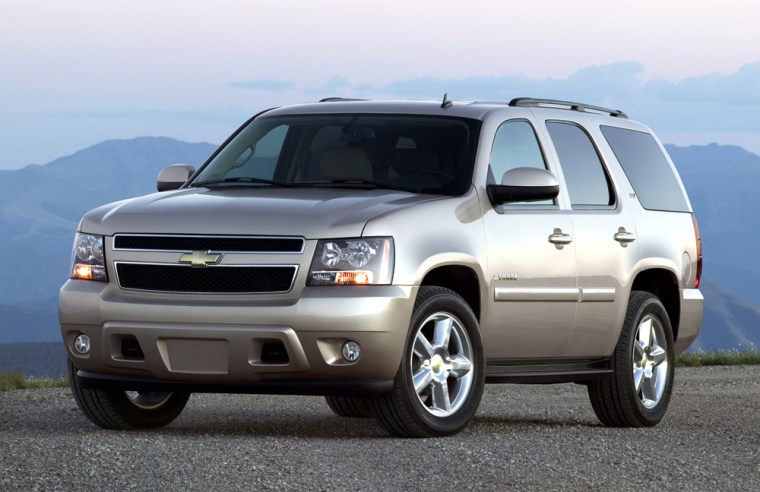With oil prices flirting with $100 a barrel, who in the world would want a large, gas-guzzling sport-utility vehicle?
Quite a lot of people, as it turns out. In the used-car market, at least, demand for midsize and large SUVs is surprisingly strong. While still far below the boom years of the late 1990s and the early part of this decade, it's proof consumers' yen for boulevard behemoths isn't dead.
Data from Black Book, a division of Hearst Business Media which tracks used-car pricing and resale values, indicate the average resale values for large SUVs are bouncing back from their 2006 low, says Ricky Beggs, Black Book's vice-president and managing editor.
Large SUV residual values (what they're worth after three years of lease or ownership) jumped to 48.6% of their original sale price this year, compared with less than 46% last year. That's about the same resale value as midsize cars and compact SUVs.
Beggs says many of the people who dumped their SUVs two or three years ago when gas prices really spiked have realized they need the space they had when they were driving those big Chevrolet Tahoes and Ford Expeditions. So they're buying them on the used market, he says. "People don't like the high gas prices," Beggs says. "But they have decided that they need the vehicle."
Used vehicle buyers save a lot of money because they aren't paying a new car premium. Better still, carmakers have put a lot of money into developing pre-owned car and truck programs around vehicles coming off lease, selling used cars that are virtually as good as new for much lower prices.
Crossovers Can't Cut It
There's something else consumers are finding, too. Even though big SUVs chug gasoline and can go just 15 mpg, many of the new, smaller crossover SUVs that people have switched to don't do that much better.
A four-wheel-drive 2008 Chevy Tahoe gets 16 mpg while a 2008 Honda Pilot with all-wheel drive is rated by the Environmental Protection Agency at 17 mpg. To the average consumer, the Tahoe costs $2,906 a year to fuel with gasoline at $3.10 a gallon. It's only $170 more than the smaller Honda costs to drive.
And if oil conservation is the selling point, the Tahoe burns 21 barrels of oil a year, compared with 20 for the Honda.
It's not that Detroit's big SUVs are thrifty. It's that none of today's people haulers get great fuel economy.
A New, Used Niche
Make no mistake. Fuel prices have taken their toll on the SUV business. That's been one of the reasons for the profit outages at General Motors, Ford Motor, and Chrysler. Sales of midsize SUVs like the Ford Explorer and Chevrolet Trailblazer have been decimated over the past five years. And the large SUVs don't sell at nearly the margins they once brought home.
But for people who need large SUVs, they're finding a way to get them and keep them gassed up and on the road.
Dealers are buying more off-lease SUVs at auction to sell on the used lot, too. Tom Webb, chief economist for Atlanta-based Manheim Auctions, the nation's largest wholesale auto auction house, says that large SUV prices have risen 2.8% in the past 12 months. Their market share has inched up, too, from 3.7% of all vehicles auctioned to 3.9%. Luxury SUVs are also a bigger portion of the auctions these days, with their share rising from 4% to 5% on the past year.
This doesn't say that SUVS are making a huge comeback. Sales of the new ones are down 5% in a market that's down 3%. But many buyers are finding ways to stay in the boulevard behemoths they fell in love with when gasoline sold for $1.50 a gallon.
